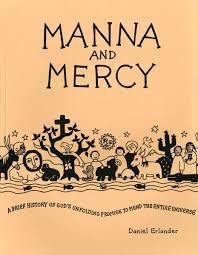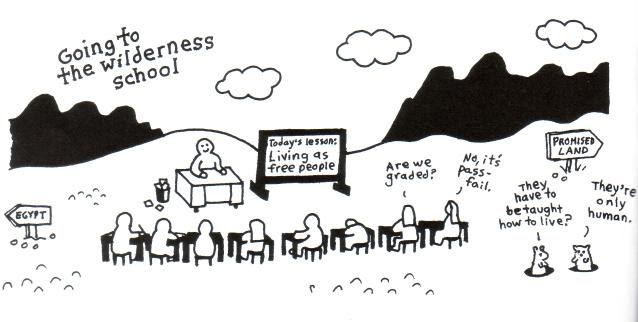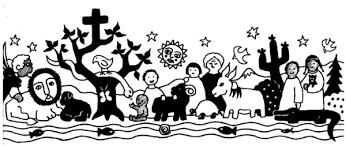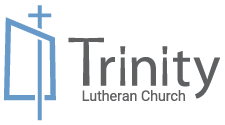“The Wilderness School,” and an old Hasidic tale
Last Friday I concluded my email reflection with the affirmation that this time of COVID-19 pandemic will not overwhelm us. I stated that we may even emerge transformed after this time in the ‘wilderness.’ From our heritage in scripture we know that God tends to work with God’s people in wilderness times, like a potter works with clay . . .
 My old friend Daniel Erlander, a teaching pastor on Whidbey Island on the Puget Sound in Washington, published a text about 30 years ago entitled, Manna and Mercy; A Brief History of God’s Unfolding Promise to Mend the Entire Universe. In his overview of the Hebrew Scriptures and the New Testament, the premise of Erlander’s text is to proclaim the providential nature of God, who provides manna, our daily bread and enough for our needs, and who provides mercy, the “welcome home” to those who turn back to God and embrace a new life. The God of manna and mercy revealed in scripture wishes to teach his people how to live as mature partners with God and to model a joyful life, embracing the shalom that God intends for the world to learn from God’s covenant people.
My old friend Daniel Erlander, a teaching pastor on Whidbey Island on the Puget Sound in Washington, published a text about 30 years ago entitled, Manna and Mercy; A Brief History of God’s Unfolding Promise to Mend the Entire Universe. In his overview of the Hebrew Scriptures and the New Testament, the premise of Erlander’s text is to proclaim the providential nature of God, who provides manna, our daily bread and enough for our needs, and who provides mercy, the “welcome home” to those who turn back to God and embrace a new life. The God of manna and mercy revealed in scripture wishes to teach his people how to live as mature partners with God and to model a joyful life, embracing the shalom that God intends for the world to learn from God’s covenant people.
As Manna and Mercy journeys with the Hebrew people in the Sinai wilderness, Erlander speaks of “the Wilderness School,” that essential time when God sought to teach his covenant people of their calling to friendship with God, friendship with others and friendship with nature. In “the wilderness school” the covenant people of the Exodus learned that all is God’s gift, that God gives enough to be shared by all, that hoarding of manna causes rot, that the work to which we are called is helping God distribute the manna gift, and that God gives rest so that humans can practice full time what life is all about. Erlander wrote:
God poured out manna day after day, dreaming of a universal manna society – a world where all receive, thank and share. Yahweh dreamed of a world where there are no big deals and little deals, no rich and poor, no oppressors and oppressed – where humans live in harmony with all creation, each part living for the good of the whole. Yahweh dreamed of SHALOM, a mended universe. (Manna and Mercy, p. 9)

As Erlander’s overview of the Bible continues, the story of the people of Israel is transformed by God’s surprise, the story of God not giving up on God’s covenant people, the story of Immanuel, God with us. The culmination of the story of Jesus, God with us, and his “troublemaking” was a mission entrusted to his followers, to invite all people to repent and receive the gift of forgiveness to advance a community of the reign of God, “a family where there is no hierarchy, no retribution, no hoarding, no oppression – only servanthood, only abundant manna and abundant mercy for all.” (Manna and Mercy, p. 59) Life in this ‘contrast society’ would be a sign of God’s purpose for all of creation.
We have been, in this time of our COVID-19 wilderness sojourn, embracing phrases like “we are all in this together,” and “we will get though this together.” Truly, to make our way through this time of separation and distancing without becoming isolated, depressed or bitter, we have a need to perceive our interconnectedness, to embrace our commonality, and to build bridges with others. We are witnesses to those who are joyfully purchasing the groceries of a stranger, those who are sacrificially standing strong on the front lines of medical treatment, those who are checking in on neighbors and those who are sharing from their abundance. To some degree, this wilderness time has been a school for all of us, teaching us the deep veracity of a living a ‘contrast lifestyle’ that supports “abundant manna and abundant mercy for all.” Will we be different when this is all over and we have landed finally in our new normal? Will our time in the wilderness school be a time of transformation, from which we emerge with joyful hearts seeking a just and humble lifestyle?
Inspired by Erlander’s “abundant manna and abundant mercy for all” way of defining God’s purpose for God’s people and by our calling to join in God’s desire to “mend the entire universe,” I have found a new heart in this time of separation to claim our deep need for one another. In the spirit of that finding, I am drawn to a simple parable from the Tales of the Hasidim, works of quiet wisdom from the tradition of Hasidic Judaism:
An old rabbi once asked his pupils how they could tell when the night had ended, and the day had begun.
“Could it be,” asked one of the students, “when you see an animal in the distance and can tell whether it’s a sheep or a dog?”
“No,” answered the rabbi.
Another asked, “is it when you can look at a tree in the distance and tell whether it’s a fig tree or a peach tree?”
“No,” answered the rabbi.
“Then when is it?” the pupils demanded. “When is it that you can tell when the night has ended, and the day has begun?”
“It is when you can look on the face of any woman or man and see that it is your sister or brother. Because if you cannot see this, it is still night.”
My friends in Christ, we reside in a time of darkness, but a light has come into the world, and we have been invited into the daylight. May this time of our wilderness sojourn bring us to a new understanding, an “abundant manna and abundant mercy for all” understanding, and may we find hearts transformed to see in all with whom we make life’s pilgrimage our sisters and brothers.
It remains a privilege to serve as one of your pastors. Join us in live streaming of “virtual worship” this Sunday:
- Third Sunday of Easter, April 26 at 9:15 a.m.
Grace and peace,
Pastor Bob Linstrom



